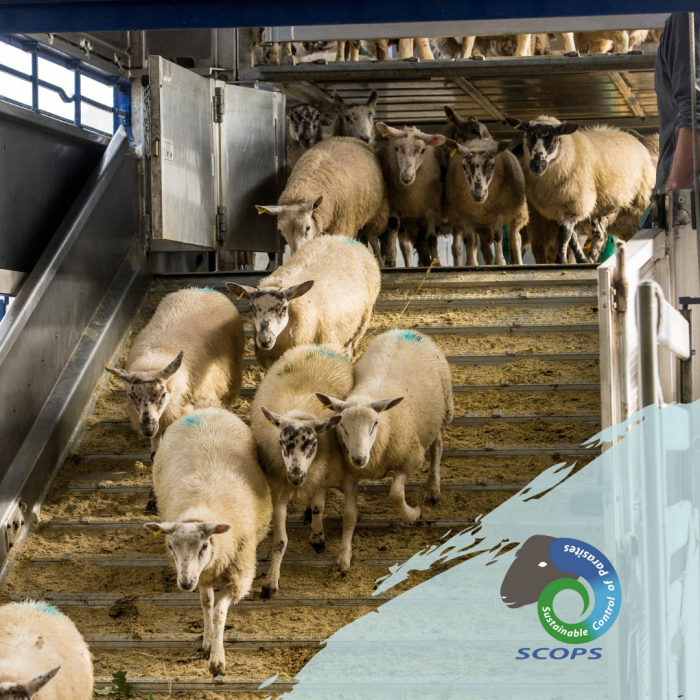20th September 2023
At a busy time of year for sheep to move between holdings, the Sustainable Control of Parasites in Sheep (SCOPS) group is encouraging producers to think about sheep health as an extremely precious asset worthy of strong protection.
Speaking on behalf of the group, independent sheep consultant Lesley Stubbings says: “If you were guarding a valuable treasure you would probably keep it in a fortress, with sturdy walls, strong gates, and vigilant guards. If your fortress was approached by unknown people you wouldn’t just let them in, you would stop them and carry out checks to make sure they were not a threat to your treasure, not think about it once they were inside the walls. Yet that is what many sheep farmers do every autumn when they bring in replacement sheep.”
Ms Stubbings says it does not matter if incoming sheep look really well, were from a top-priced pen or even come from a known source. They still carry the potential to wreak havoc from a long list of potential threats – including sheep scab, lice, resistant roundworms and/or liver fluke, haemonchus contortus (the barber’s pole worm), contagious ovine digital dermatitis (CODD), footrot and orf to mention a few.
“Most of these you cannot see and some, such as CODD or sheep scab, can take some time to show themselves. The only way to protect your flock is to put a safeguarding policy in place,” she says.
“For sheep farmers, our fortress is our fences, our guards are testing and appropriate treatments, and our strong gates are the steps we take to isolate any new sheep to make sure they are not bringing in any threats. Key to the whole process is making sure they go into an isolation period (quarantine), just as you would imagine medieval newcomers camping outside the fortress walls until they were deemed safe. In modern parlance, it’s like hitting the pause button online when playing a video game, so you can isolate yourself from a dangerous enemy until you have had time to assess the threat and find a way to neutralise it.”
Kevin Harrison, a sheep farmer from near Bristol who chairs the SCOPS group, has many years’ experience of buying in replacement females and running the risk of bringing in new health problems. He says: “Of course, an effective quarantine policy requires some time and costs money, but this is nothing compared to the cost of importing one or more of these diseases. For example, sheep scab can take up to six months to show its hand, by which time the majority of the breeding ewes in a flock will be affected, along with young lambs. Anyone who’s gone through that will tell you it’s a very unpleasant experience, very difficult to deal with, and devastating for your flock’s health status.”
A wide range of practical biosecurity and quarantine advice for farmers, vets and advisers is available on the SCOPS website at
www.scops.org.uk/internal-parasites/quarantine-advice-for-internal-and-external-parasites. This includes a downloadable poster for vets and advisers, and a calendar to apply to different on-farm scenarios depending on risk levels.
